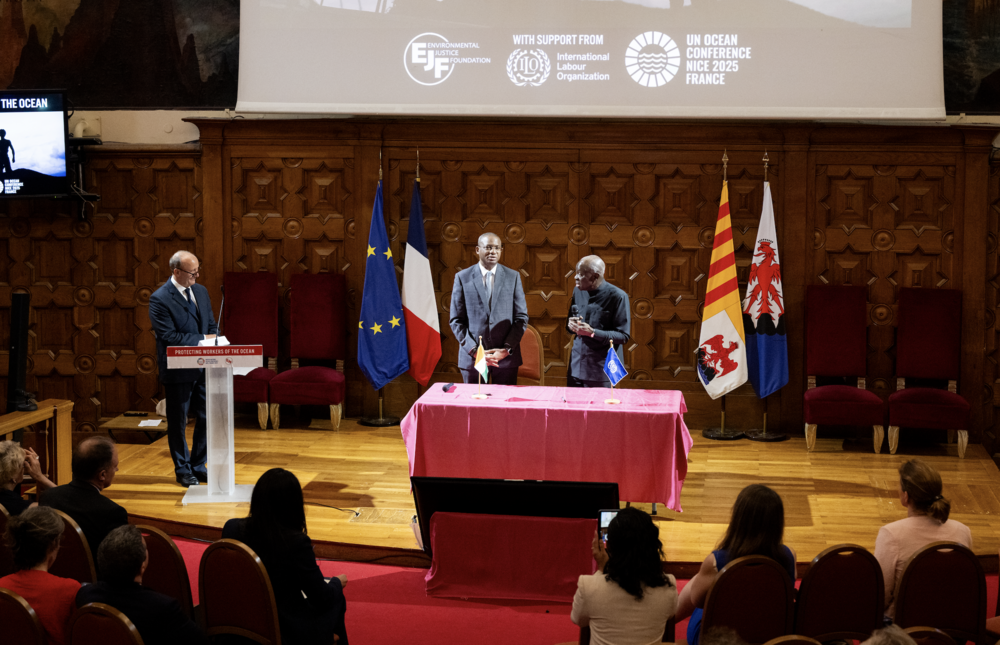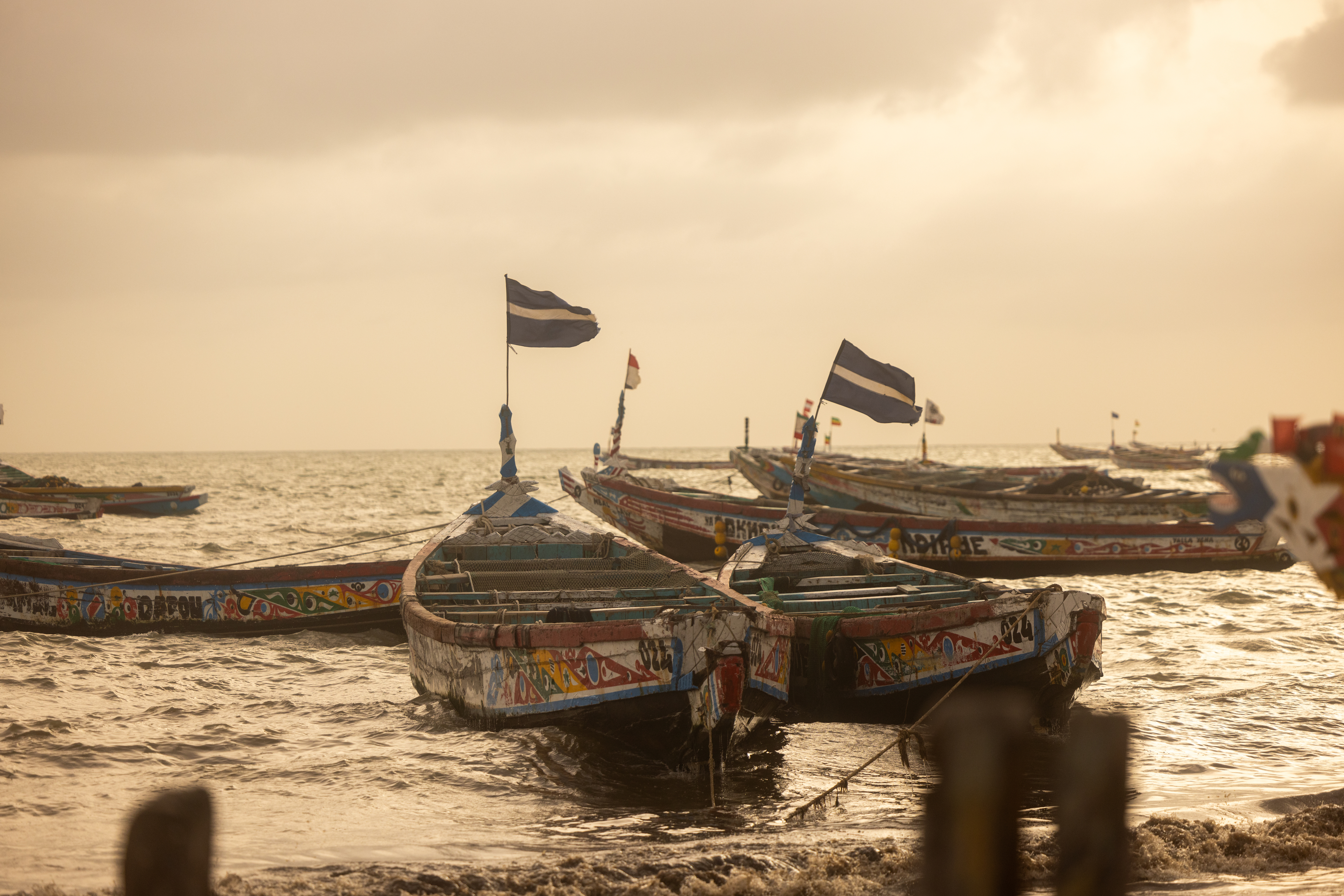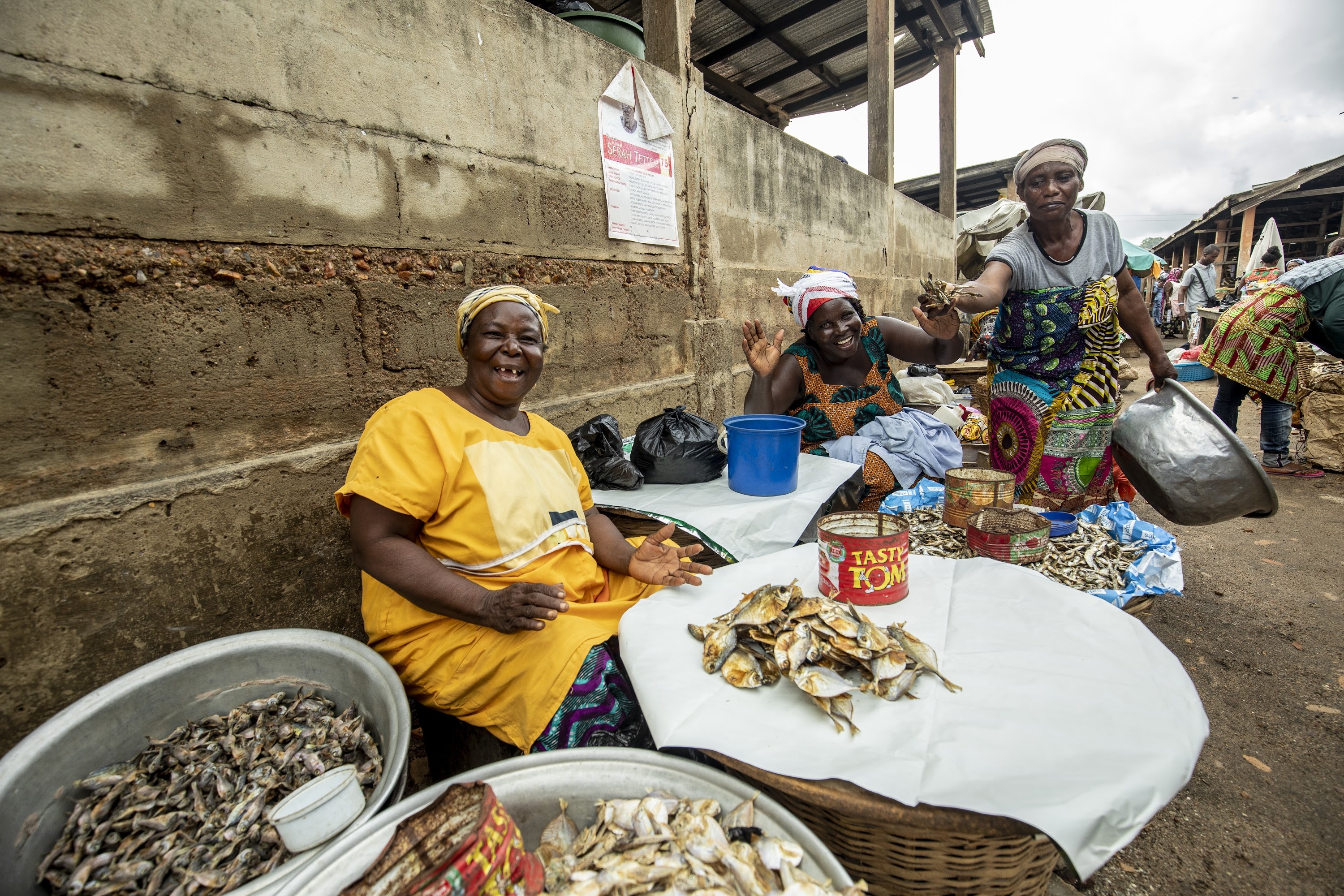
Human rights at sea championed at UN Ocean Conference
UN Ocean Conference, Nice, France, 9 June 2025
For immediate release
Yesterday, World Ocean Day, governments, international organisations, and civil society came together to call for stronger protections for fishers. Co-hosted by the Environmental Justice Foundation (EJF) with support from the International Labour Organization (ILO), an official UN Ocean Conference event offered practical solutions to human rights abuses at sea.
Distant-water fishing is one of the world’s most dangerous and least regulated industries. Many crew members face appalling conditions, including forced, bonded and slave labour, human trafficking, and violence. These abuses are enabled by weak enforcement and a lack of transparency in global fisheries.
Yesterday’s event focused on the tools available to end this. Côte d’Ivoire deposited the instruments ratifying ILO Convention No. 188, and Belgium ratified the Convention at the national level. The ILO, France and the UK launched a global campaign for widespread C188 adoption. Partners on this campaign include the European Commission, and other countries will continue to join following this event.
Hon. Sidi Touré, Minister of Animal and Fisheries Resources of Côte d'Ivoire, said: “Côte d'Ivoire has made it a priority to develop the economic potential of its resources, but also to protect its workers. We are pleased to be a forerunner in the ratification of this convention, a forerunner at the African level, and we will continue to lobby our sister countries. Those who work behind the scenes and enable us to benefit from quality and sustainable resources on our plates should be able to work in dignity and benefit from this specific commitment.”
Anne-France Jamart, Consul-General of Belgium in Marseille, said: “I am very pleased to announce Belgium’s ratification of the International Labour Organization Convention 188 on work and fishing. By ratifying C188, Belgium reaffirms its commitment to upholding fundamental labour rights and promoting social justice in line with its obligations as a member of the International Labour Organization. We hope that our ratification encourages other nations to follow.”
Gilbert F. Houngbo, ILO Director-General, said: “Millions of fishers operate outside formal employment systems. Many are migrants and particularly vulnerable. Some are exploited, or even trafficked and subjected to forced labour. The Work in Fishing Convention, adopted by the international community in 2007 (C.188), provides a minimum universal standard for decent work in the fishing sector. If we can agree on widely ratifying, implementing and enforcing a global standard for seafarers, why not for fishers? The logic is clear. The tools exist. The moment is now.”
Éric Banel, France’s Director-General for Maritime Affairs, Fisheries and Aquaculture, said: “We are proud to announce the launch of a dedicated campaign to promote the ratification of the C188 convention. IUU fishing, and the fight against IUU fishing, is one of the core messages that President Macron wants to convey through UNOC. The low level of ratification of ILO C188 is a strategic issue that we need to address as part of our common endeavour to eliminate IUU fishing.”
John Cousley MBE, Head of Seafarers at the Department for Transport of the United Kingdom, said: “A decent and safe working environment for fishers, free of exploitation, is important to the United Kingdom, as it should be for every country with a fishing fleet. That’s why we are joining France and the ILO in launching this strategic partnership at this UN Ocean Conference. The United Kingdom is committed to making poor working conditions a thing of the past and ensuring all who work at sea, whether seafarer or fisher, are protected.”
Steve Trent, CEO and Founder of the Environmental Justice Foundation, said: “The investigations of EJF and many others mean that we are all now witness to the abuses of fishers and other workers at sea; we know of the violence, human trafficking, forced, bonded and slave labour - even murder. This cannot be our legacy. States must act to ratify, implement and enforce the ILO conventions, such as the Work in Fishing Convention C188, alongside the Global Charter for Fisheries Transparency: 10 simple measures that can expose abuses at sea and in doing so empower governments and business to end them.”
ENDS
Notes to editors
About EJF
Our work to secure environmental justice aims to protect our global climate, ocean, forests, wetlands, wildlife and defend the fundamental human right to a secure natural environment, recognising that all other rights are contingent on this. EJF works internationally to inform policy and drive systemic, durable reforms to protect our environment and defend human rights. We investigate and expose abuses and support environmental defenders, Indigenous peoples, communities, and independent journalists on the frontlines of environmental injustice. Our campaigns aim to secure peaceful, equitable and sustainable futures. Our investigators, researchers, filmmakers, and campaigners work with grassroots partners and environmental defenders across the globe. For more information, please contact media@ejfoundation.org.
Image credit: © Fred Marigaux
SIGN UP FOR OUR EMAILS AND STAY UP TO DATE WITH EJF

